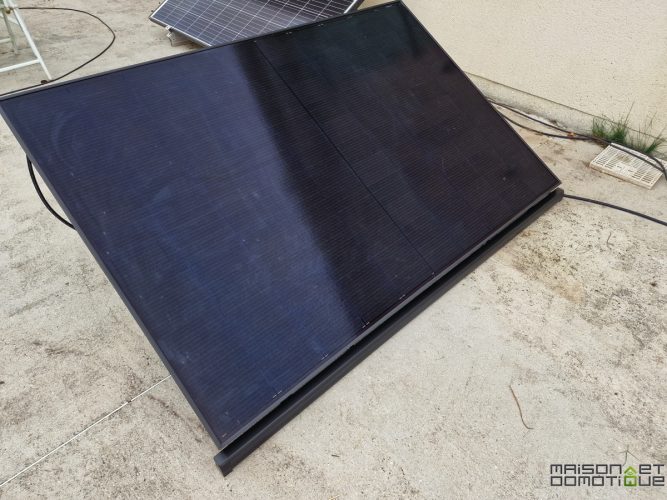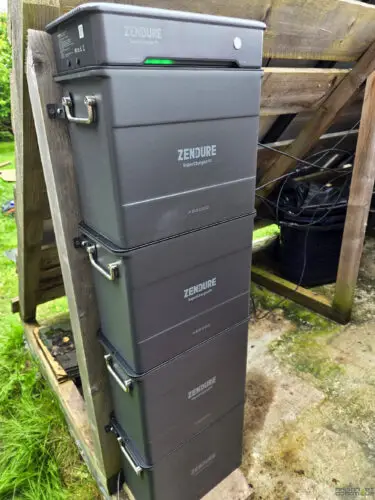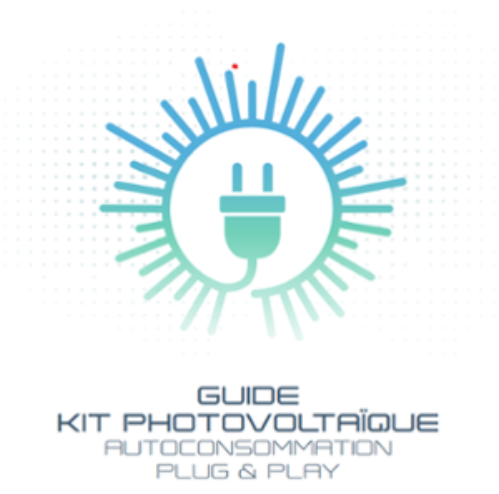In recent years, plug&play solar installations, often called solar stations, have become much more widespread, as we have seen with Sunology, Beem, Sunity, Sunethic, etc. These systems have the advantage of simply plugging into an electrical outlet, to immediately reduce your electricity bill. These systems are very popular for their ease of installation and in terms of legislation, since a simple, free Enedis declaration is required, sometimes even taken care of by the manufacturer. In addition to solar stations, there are also plug&play battery energy storage solutions, such as Zendure or Anker Solix.

While these solutions allow anyone to reduce their electricity bill very easily, many people have questions about Consuel, and there are many exchanges on social networks, where everything and its opposite is said. To shed light on this subject, we contacted this organization directly to get clear answers to these important questions. Elika Saidi-Chalopin, Deputy Technical Director at Consuel, took the time to enlighten us on this subject.
Home and Home Automation – Could you start by reminding us what Consuel is and its role in the field of electrical installations?
Elika Saidi-Chalopin – Consuel, or National Committee for the Safety of Electricity Users, is an association created 60 years ago under the impetus of installers and EDF at the time to guarantee the safety of electrical installations before they are connected to the network. Consuel is now an association under the 1901 law, recognized as being of public utility for 20 years now, and under the supervision of the DGEC (General Directorate for Energy and Climate).We issue certificates of conformity to verify that the installations comply with the safety standards in force. Although this mission originally concerned conventional installations, it now also includes electricity production installations, such as photovoltaic panels, which represent 99% of renewable energy installations. Consuel plays a key role in validating these installations, in particular to ensure their safety before connecting them to the network. Whether they are residential premises, agricultural sheds, on the ground, car parks, where you can have a solar park, etc., as long as it is a fixed electrical installation that is going to be connected to the network, Consuel intervenes.

MD – Is there a regulatory distinction between traditional solar installations and plug & play systems?
E.S.C. – Absolutely. The main difference lies in whether or not the electrical installation is modified. Traditional solar installations, which require a direct connection to the electrical panel, must obtain a certificate of conformity from Consuel. On the other hand, plug & play systems, which plug directly into an electrical outlet without modifying the installation, are exempt from this obligation.
MD – Do users of plug & play solar stations have to have their installation checked by Consuel before putting it into service?
E.S.C. – No, as long as there is no modification to the electrical installation, it is not necessary to call on Consuel. Plug & play systems are considered products, like a household appliance that you would plug into a socket. There is no need for a certificate of conformity to connect a washing machine or dishwasher at home. There is also no need for one for a plug & play system. However, as soon as a modification is made, for example direct connection to an electrical panel, a certificate of conformity becomes essential.
MD – What about the 3 kW limitation that we often hear about?
E.S.C. – There is sometimes confusion regarding this limit. In fact, there is no 3 kW threshold in the regulations that would require a certificate of conformity from this power. This threshold is often linked to other procedures, such as declarations to the town hall under the urban planning code, for example for rooftop installations exceeding a certain height. There is a distinction between the urban planning code and the energy code.
On the other hand, for plug & play systems, the maximum recommended power is 900 watts per kit, because beyond that, the risk of overloading the circuit becomes too great. It is therefore important not to rely on this 3 kW threshold to determine whether or not a Consuel certificate is required.

MD – What are the main safety concerns associated with plug & play solar stations that plug into an electrical outlet?
E.S.C. – The main concern is the condition of the existing installation. Connecting a solar kit to a power outlet without knowing the quality of the installation can lead to risks of heating or fire. This is particularly true if several kits are connected to the same circuit or if the installation is not designed to support a continuous load. This is why it is crucial to check the condition of the installation before connecting this equipment. It is important to know that although a domestic electrical outlet is indicated as being able to support 3680w (16A), it has not been designed to support this power continuously. Connecting 3000w of solar panels for example to such an outlet could lead to heating of the electrical circuit during the full production phases. Technically, such an outlet is designed to support peaks of up to 16A, but is only made to support a continuous intensity of 8A maximum. This is also why electric vehicle chargers that plug into a domestic socket are limited to 8A, because a 16A charge for 15 hours would be dangerous on this type of socket (it is better to install a reinforced socket, failing to install a “real” charging station). It is therefore not advisable to connect more than 900W of panels to the same electrical circuit, and on condition that the circuit is at least 2.5mm2.
MD – What are the compliance criteria that Consuel checks for this type of installation?
E.S.C. – For a traditional photovoltaic installation, Consuel examines several aspects: the sizing of the cables, the presence of adequate protection devices, and the connection to the electrical panel. As for plug & play systems, which do not require modification, they escape this type of control. However, components such as panels and micro-inverters must comply with specific standards.
MD – Do all models of plug & play solar stations on the market comply with the safety standards in force?
E.S.C. – Solar panels and micro-inverters generally comply with the standards, because these components are subject to specific requirements from their respective manufacturers. However, there are still no global standards for plug & play solar kits as assembled products. It is therefore important to choose reliable manufacturers and follow their recommendations, because some offers on the market are not always optimal in terms of safety.
MD – What about so-called Plug & Play photovoltaic installations that are installed on a roof?
E.S.C. – Because they use a micro inverter that simply plugs into an electrical outlet, they do not require Consuel validation. However, the term “plug&play” is used incorrectly. On the one hand, installing on a roof is not that simple, and can lead to infiltration problems if it is not done properly. On the other hand, it is not certain that insurance will cover any damage that could occur following this installation, whether for a flood or a fire for example, because it was not carried out by a qualified person. Finally, this type of installation is of course subject to a request to the town hall, because it changes the appearance of the building, and may be contrary to the PLU or even the regulations of the Buildings of France (if you are close to a listed building in particular). The manufacturers of this type of solution play on the fact that the legislation is still vague on the definition of a Plug&Play installation, but the reality is not that simple. MD – Are plug & play energy storage batteries subject to the same inspection requirements as solar panels?
E.S.C. –
Plug & play batteries follow the same rules as plug & play solar panels. If they do not require any modification to the installation, they are not subject to Consuel inspection. However, it is crucial to respect safety precautions, particularly in terms of location and ventilation, to avoid any risk of thermal runaway. MD – What recommendations would you give for the installation and use of these plug & play batteries?
E.S.C. –
It is best not to install these batteries in living rooms, as they can present a risk in the event of overheating or thermal runaway. It is advisable to install them in well-ventilated areas, protected from shocks and heat sources. Similarly, they should not be installed in a place such as a garage where gas cylinders are stored, for example. Outside, exposure to sunlight should be avoided, as it can cause the battery to overheat. The ideal is to choose a specific dedicated location in a room, to be sure not to endanger the safety of people. The same compliance with injection powers as that seen for solar panels applies. Many manufacturers have also limited the injection power of these batteries to 1000 or 1200w, so as not to cause overheating of the line.
Finally, even for these plug & play systems, I recommend calling on a professional to assess the electrical installation.
Connected via an electrical outlet, this 8kWh battery does not require any Consuel certification

E.S.C. –
My main advice is to respect the recommended power ratings and to scrupulously follow the manufacturers' recommendations. Do not underestimate the importance of a well-sized electrical circuit, and always consider calling on a qualified electrician to ensure that the installation can safely accommodate this equipment. MD – Are there any documents or resources that Consuel makes available to help individuals comply with the standards?
E.S.C. –
Consuel does not have any documents specifically intended for individuals, because our main mission is to work with professionals. However, a guide was recently published by SER and Enerplan, in collaboration with ADEME, which explains how to safely install plug & play solar systems. This guide is available online and is an excellent resource for consumers. MD – How do you see the evolution of the regulations concerning plug & play solar installations in the coming years?
E.S.C. –
The regulations will probably evolve, because these installations are becoming more democratic. A first step has been taken with the publication of the guide I was talking to you about, but there are still gray areas to clarify, especially in terms of standards for assembled products. I think that with time and the evolution of the market, stricter rules will be put in place to better supervise this type of installation.



Please remain courteous: a hello and a thank you cost nothing! We're here to exchange ideas in a constructive way. Trolls will be deleted.